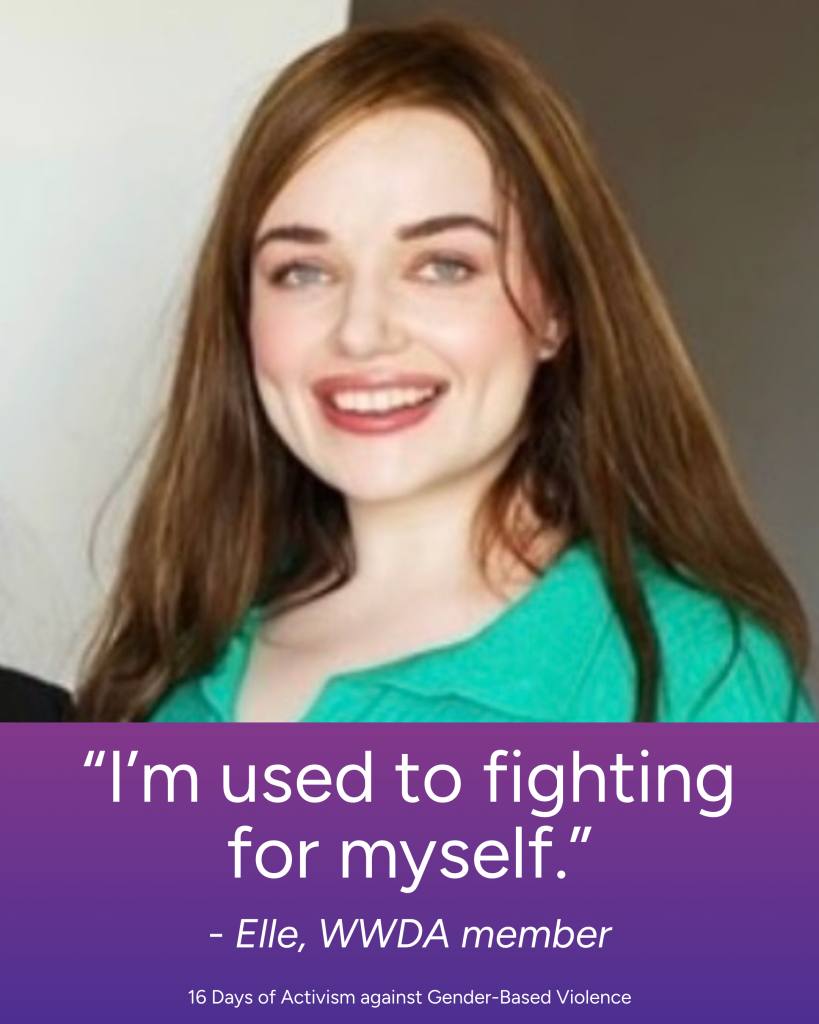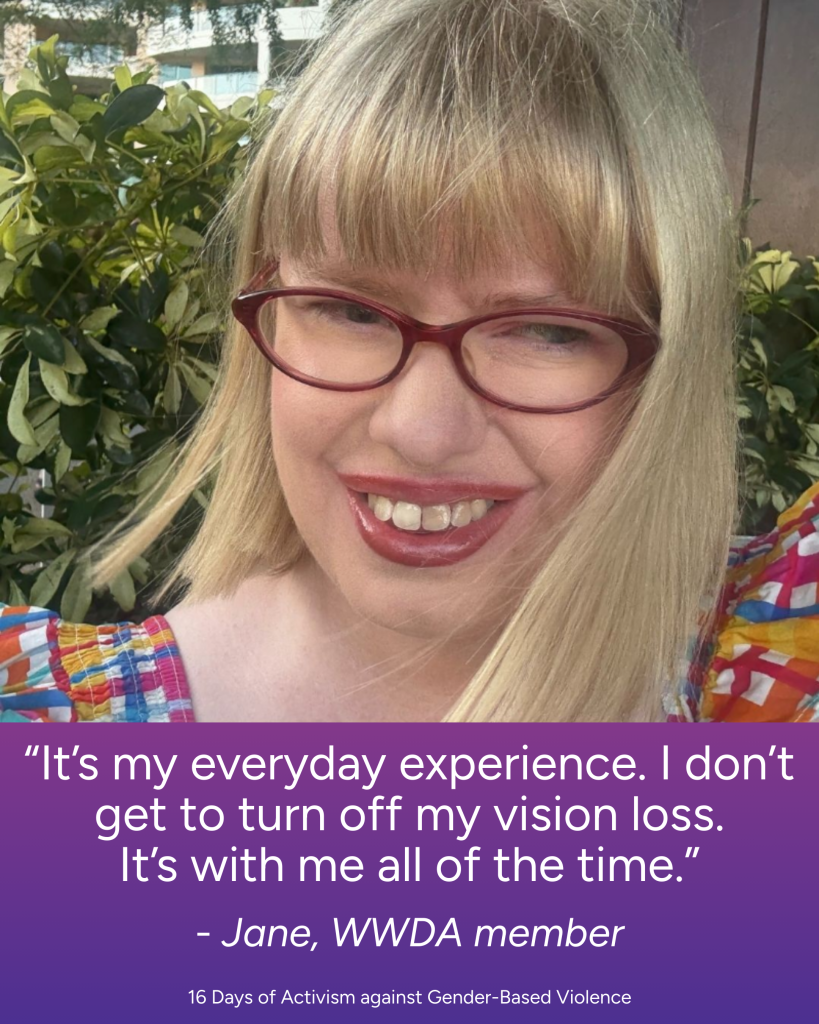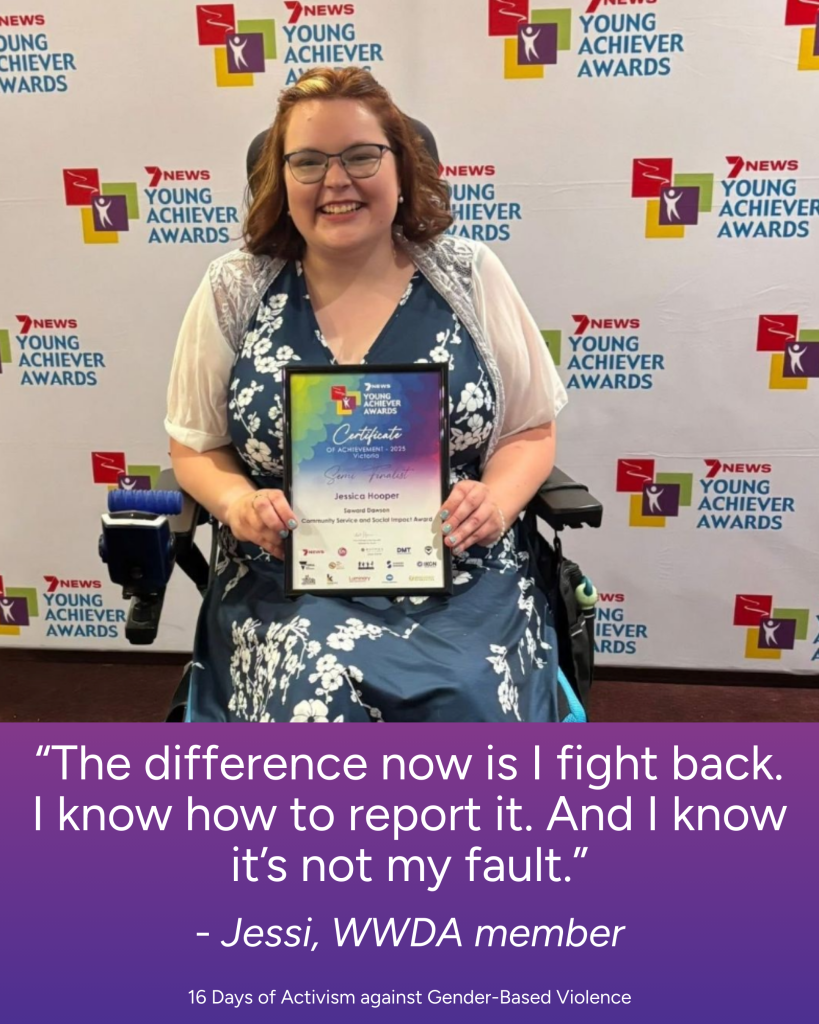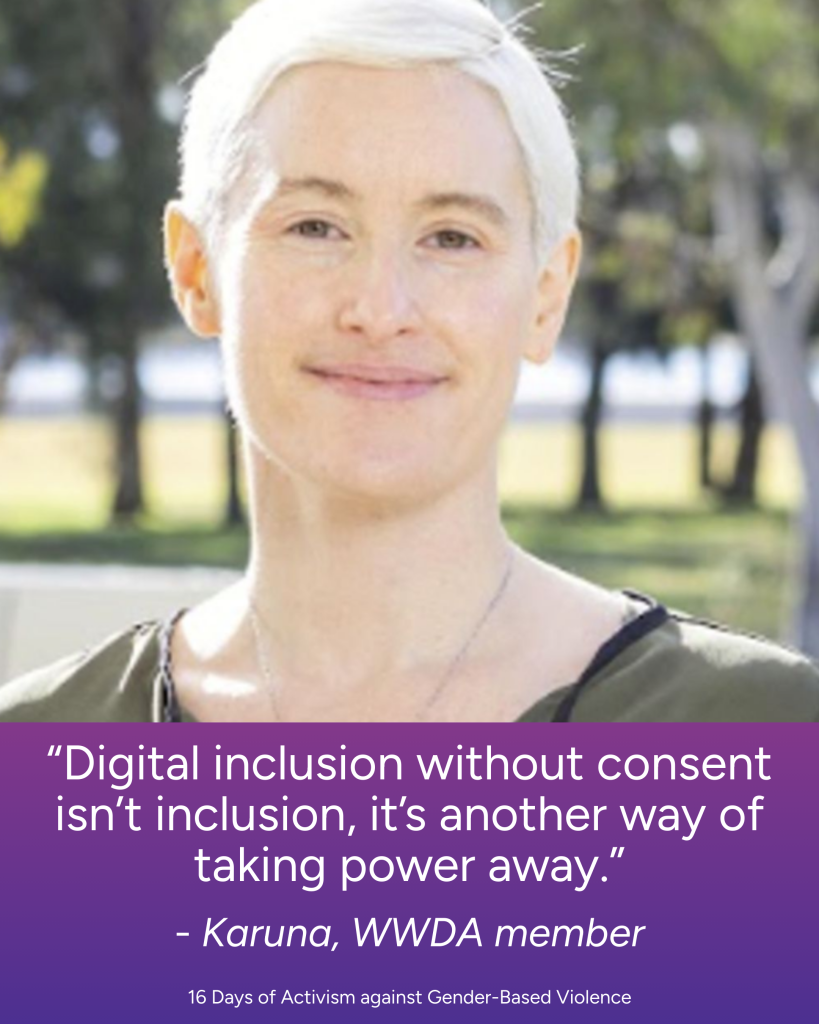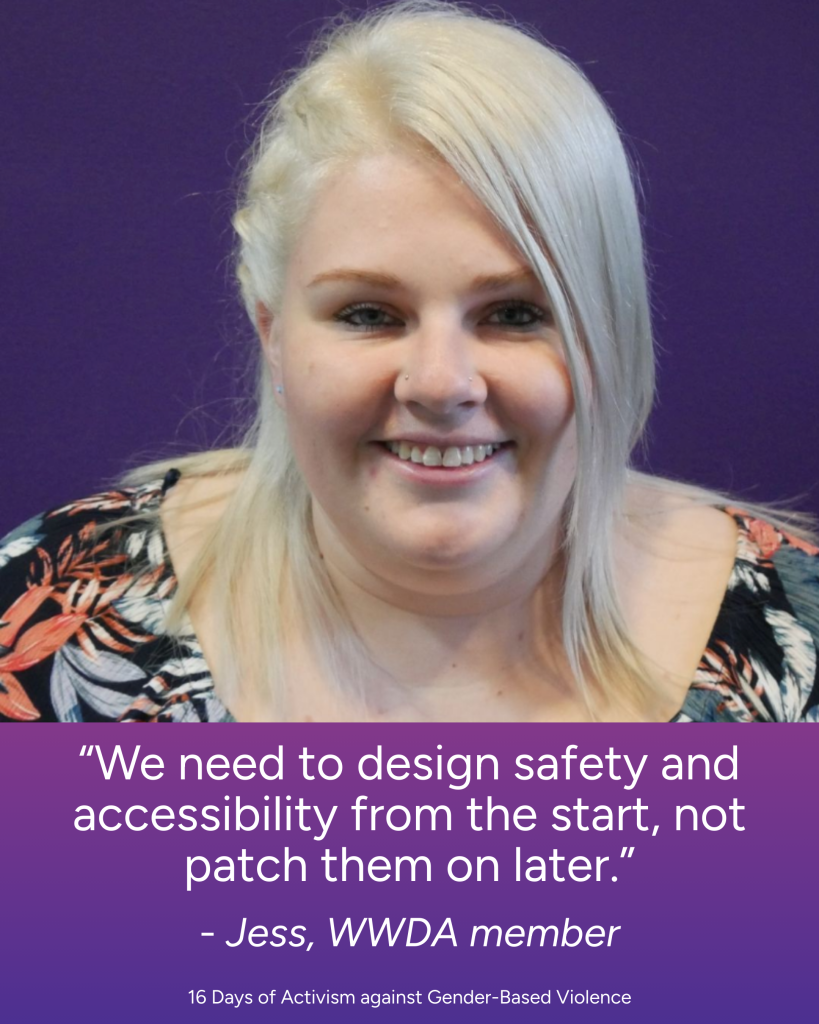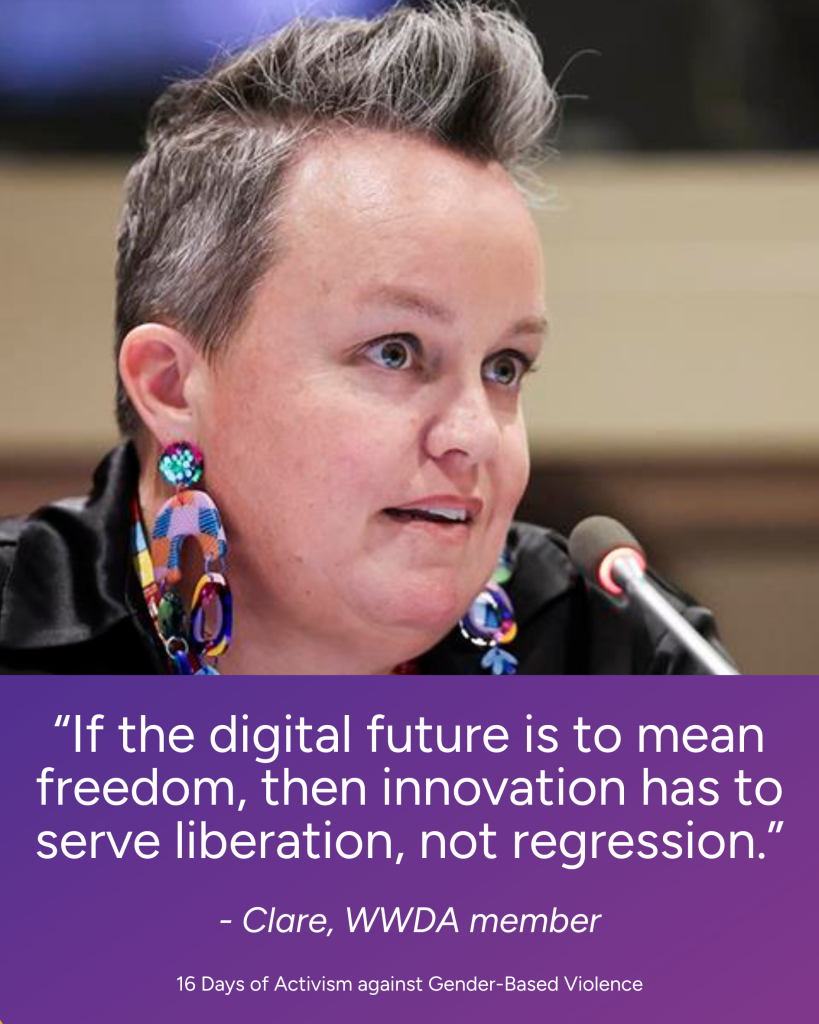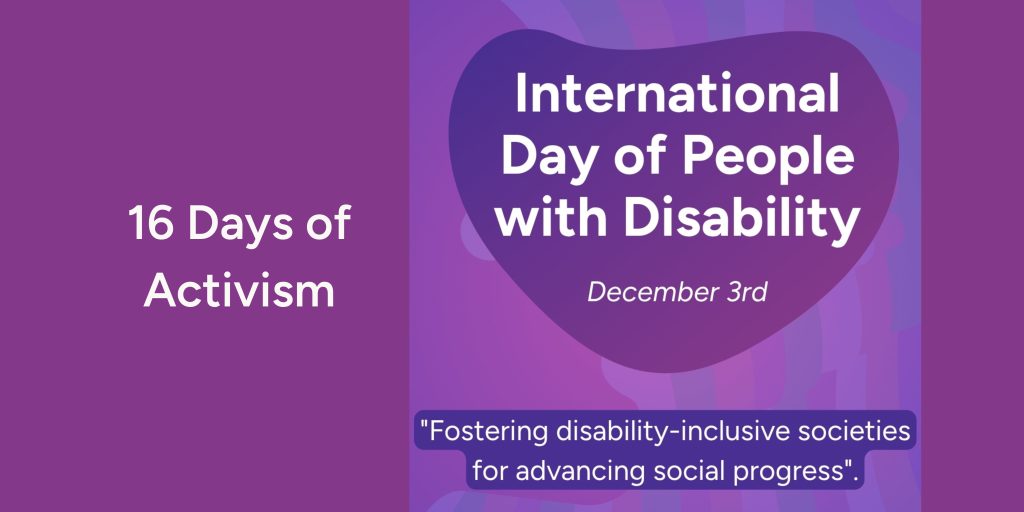Content warning: mentions of online discrimination, digital violence, systems abuse.
This International Day of People with Disability, we honour the strength, creativity and leadership of people with disabilities across Australia. This year’s theme “Fostering Disability-Inclusive Societies for Advancing Social Progress” asks us to imagine something simple and radical: a world where inclusion is not an afterthought, but a foundation.
At Women with Disabilities Australia (WWDA), this vision is deeply connected to what we’ve heard throughout our 16 Days of Activism campaign. WWDA members shared their experiences of digital violence, ableism, advocacy and survival in online spaces. Their stories were distinct but the themes that emerged were universal: visibility, safety, agency and the right to participate fully in our communities.
Online spaces are not neutral for women, girls and gender-diverse people with disabilities. They remain places of connection and harm, opportunity and exclusion, empowerment and fear, often at the same time.
Stories we have heard reflect this. For Michelle, digital abuse meant harassment, threats and the violation of having her images stolen and posted on adult sites without consent. For Jessi, online bullying began in high school and intensified her experiences of disbelief and violence. For Jane, harmful online trends like TikTok’s “Blind Challenge” trivialised her lived experience of vision loss. Jess spoke about the need for online design that centres safety, accessibility and trauma-informed choices. And Karuna illustrated how digital systems, from education to health can replicate the same power structures that once harmed her, especially for women with psychosocial disabilities.
What connects these stories is not victimhood, but leadership.
Each of them used their voice, perspective and experience to demand better.
Their stories teach us that disability inclusion cannot be achieved through awareness days alone, it must be lived, legislated and designed into every system we rely on.
Digital inclusion means little without safety.
Safety means little without accessibility.
Accessibility means little without agency.
And agency means nothing without trust that systems will listen and respond.
International Day of People with Disabilities falls in the middle of 16 Days of Activism, and as such it is a powerful reminder that ending gender-based violence requires us to centre the experiences of women, girls and gender-diverse people with disabilities, because our community faces some of the highest rates of violence and some of the lowest rates of recognition.
The leadership of WWDA members across this campaign shows what true disability-inclusive progress looks like:
• It looks like speaking truth to platforms that profit from harmful trends.
• It looks like calling out algorithmic bias and inaccessible reporting systems.
• It looks like advocating for trauma-informed digital design.
• It looks like fighting back when systems misuse records, data or identity.
• It looks like finding community in online spaces, even when those spaces cause harm.
Today is a celebration and a call to action.
A disability-inclusive society requires:
• representation at every decision-making table
• digital systems that protect rights, not remove them
• co-design as standard, not a token gesture
• safety and accessibility built from the start
• an end to ableist trends, online violence and discriminatory tech
We honour our community, whose advocacy – online and offline – continues to push Australia toward a safer, more equitable future.
On this International Day of People with Disabilities, we say clearly:
Our stories matter. Our leadership matters. Our rights matter.
A truly inclusive society begins by listening and acting.

